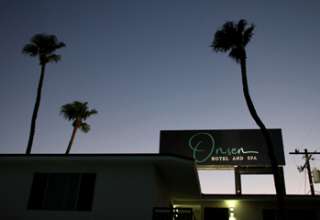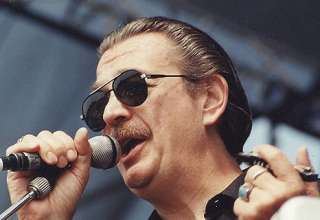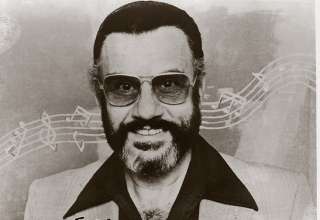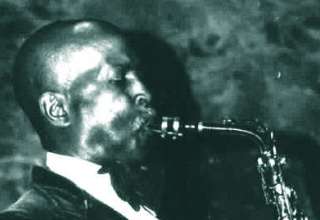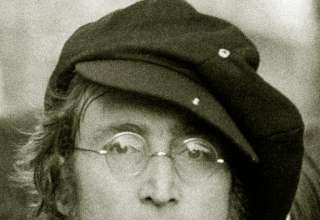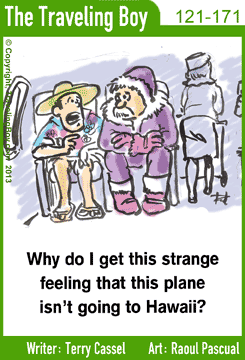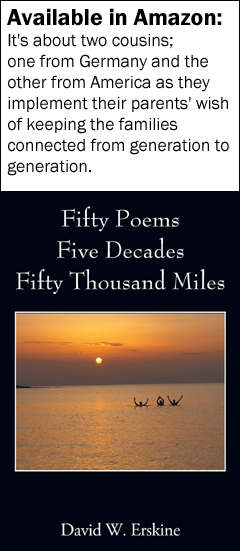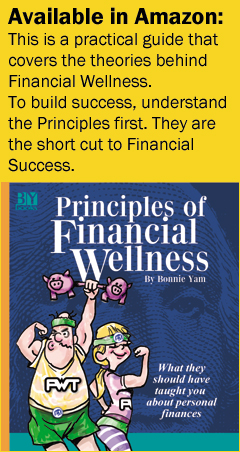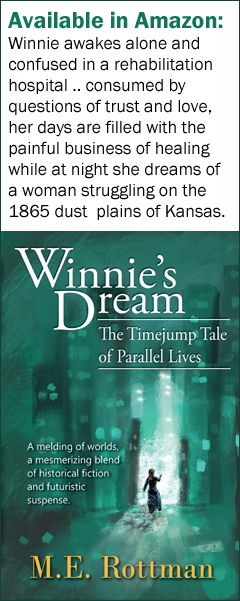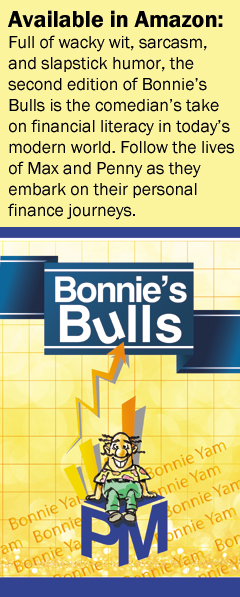When you dig into the musical background of Nick Moss you notice immediately his appreciation and understanding of the blues comes directly from the artists and players that helped create them. Born and raised in Chicago Moss grew up in a city known for its electrified and amplified urban style of blues. You know the ones; those gritty, 50s era up-tempo house rockers that rattled the windows in every club and dive bar on both South and West sides of the Windy City…24/7.
Nick says he realized early that there was something different about the blues, “I didn’t hear it…I felt it. It felt like a bolt of lightning, like my whole body buzzed.” The same feeling and effect every steelworker, stockyard, railroad and dock laborer strived for. So what better place to begin our conversation than with influences, emotional and musical…you were playing bass with Buddy Scott in the beginning, were his brothers still playing with him then? “Walter played with him but Howard had his own band, the World band. There was another brother who had passed before I was in the band. Buddy also had his son, Kenneth ‘Hollywood’ Scott who played in the Platinum band and who was Tyrone Davis’ bandleader.”
Was playing with the Buddy Scott band like your first big break into music? “Yeah, pretty much Buddy Scott and Jimmy Dawkins; those two absolutely. Buddy Scott was great; he fostered a lot of people in his bands over the years. Michael Coleman, Chaka Khan and her sister were backup singers at one point. Man, he had so many great musicians passing through his bands.”
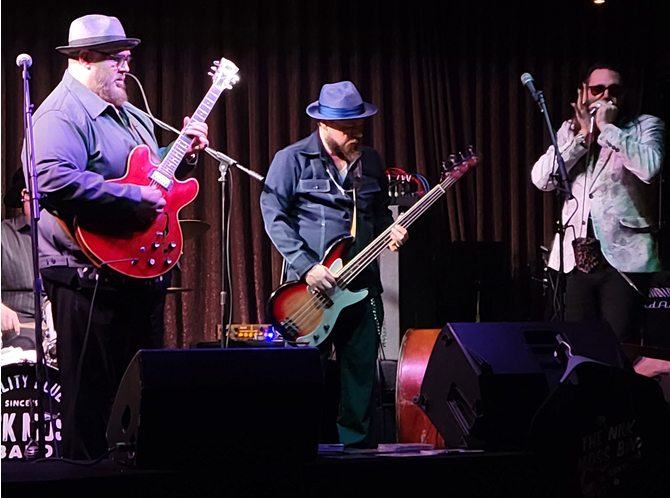
And then you worked with another amazing performer; Jimmy Dawkins. “Jimmy Dawkins was kind of quiet and didn’t give too many instructions, his style was completely different and the West Side style is so raw and I honestly was not prepared for it. I was with him just shy of a year and he eventually said, ‘Hey man, I don’t think you’re quite ready for this.’ It was definitely a pivotal point because as soon as that happened I immediately knew that I was never going to let anyone else tell me that I wasn’t prepared. And I went into the woodshed really hard for about a year and I was a bass player then. So I made it my point to go out six or seven nights a week, if there was music playing, I was out! Sometimes multiple clubs a night, and I would go see Bob Stroger, I’d go see Fuzz Jones, I’d go see Willie Kent play, Willie Black…all these great bass players that were still in Chicago. I’d sit right in front of them and watch them and then on the breaks I’d go up and talk to them. They were all so cool, man. They never said get out of here or anything. If I asked them a question they’d tell me, ‘Oh, you gotta’ do this or do this.’ And that’s what I did, so when I got my next opportunity to play I just made sure I was prepared this time.”
The Legendary Blues band and Willie ‘Big Eyes’ Smith… “Yeah, and that was from going out to all those gigs! So, Melvin Smith another great bass player who was playing with Koko Taylor at the time, he was asked to fill the void because Fuzz Jones was moving down to Senatobia, Mississippi. He wanted to move back close to his hometown. Melvin was already pretty comfortable with his spot in Koko’s band and he told Willie ‘there’s this young kid, you may like him and I think he’s got something.’ And I ended up doing what I said from going out to all these shows, and asking questions and trying to learn. I was maybe nineteen or twenty. I don’t think I was twenty, yet.”
The laundry list of players involved with the Legendary Blues Band reads like the Who’s Who in Blues. Luther ‘Guitar Jr.’ Johnson, Billy Flynn, Duke Robillard, Little Smokey Smothers…and you’re not even twenty years old, yet!” “I was too naïve to even understand… I didn’t know better. All I knew, is I wanted to play and I didn’t want to lose a job the way I had with Jimmy Dawkins. I wanted to learn everything I could and be around these amazing musicians. I knew these guys were bad dudes to be with if I wanted to learn it. With that being said, honestly it’s not until now in hindsight where I realize how important it was to be with those guys. I just knew they played all the time and they played the stuff that I liked and if I could be with them and just learn… that’s all I really want to do.”
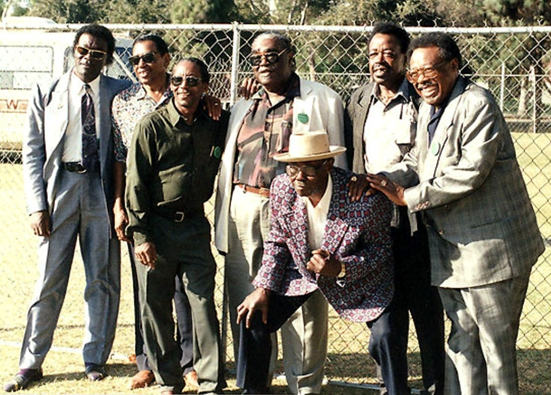
Is that how you met Jimmy Rogers? “So, backing up, I got the gig with Willie Smith when Fuzz left the band and that lasted for almost four years. But the last year I was with Willie our guitar player, Willie Greeson who went by the name Willie Phillips then. Willie Greeson was having family issues and decided he couldn’t be on the road anymore and Willie Smith knew that I wanted to play guitar so he says, ‘why don’t you play guitar and you can teach the bass player that comes in.’ So, I ended up switching to guitar that last year and getting my chops going and it just so happened towards the end of the year, Willie had to go on the road with a Muddy tribute tour. I believe it was Fuzz, Willie, Jimmy Rogers, Pinetop, all those guys and it was going to be a six-month tour, so I was stuck at home. Another fellow Chicago side guy, Dave Clark and I were doing a gig one night and he seemed bummed out and I asked what’s up, Dave? He goes, ‘Aw man, I got the opportunity to do this great tour with Jimmy Rogers but I can’t because I have my son for the summer.’ He was divorced and he couldn’t do it. I said oh man; I’d love to do it. I was playing bass that night and he said, ‘Oh, man I forget you play guitar, you want me to make a call? I’ll make a call, you could handle this gig.’ I go who’s it with? He says, ‘Jimmy Rogers.’ Unbeknownst to me and Dave, Willie Smith had told Jimmy the same thing. ‘Why don’t you use my guy, he’s at home doing nothing.’ I got a call that Sunday morning about 8AM and when you’re like 22 years old when the phone rings at 8 in the morning, you’re like who the…I go Hello and this voice says, ‘I’m looking for Nick Moss, this is Jimmy Rogers.’ And I go yeah, okay and hung up! And the phone immediately rings back, ‘Oooh Hey, whoa, don’t hang up this is Jimmy Rogers here!’ Oh, shit and I immediately remembered talking with Dave the night before…I actually thought it was Dave messing with me, and Jimmy said, ‘I need a guitar player, can you do it?’ And I got the gig with Jimmy and it lasted about three and half years.”
Did I read somewhere that when you were a kid you actually got to see Muddy play? “As a kid, my parents loved all kinds of music. We were fortunate our parents instilled the love of music in both my brother and I. Before the Blues Fest there used to be Chicago Fest and it was staged on the Navy Pier every year. It was a multi-genre of music, all kinds of stuff and a great festival. I can’t remember if it was ’80 or ’81 that Muddy played there and we had gone to see someone else but they had cancelled. But my mom took my brother and me down to the festival grounds and by chance Muddy was playing. That was the first time I got to see him. I think Lovie Lee was on piano, Rick Kreher on guitar. I didn’t know what I was watching, but it was cool. My brother and I loved it. My brother had already started to dive into what blues was, because he was big into the rock scene with Zeppelin and ZZ Top. He was already digging into my mom’s record collection. My mom grew up on the South side of Chicago in the 50s and she lived close enough to the Indiana border so she and her girlfriends when they were 16 and 17 would go across the border where you could drink and smoke in the bars at 16 or 17.” (laughing) “So she saw artists like John Brim and Eddie Taylor and all these guys. She didn’t know what she was seeing but she loved it. She had all these 45s of all these blues guys and soul bands.”
Let’s talk about the formation of your early band, the Flip Tops. “After leaving Jimmy’s band in ’97 his son came back into the band and I think Jimmy died shortly after that but he had already been diagnosed (cancer) and didn’t want anyone to know and I think he wanted to get his kid back in the band for the end of his career. So, I knew I had to do something and I put this band together. Originally it was going to be my brother and myself and the former bass player and drummer that was with Jimmy towards the end, that were friends of mine, Mark Fornek and Mike McCurdy who played with Dave Specter for a long time. We formed this band and then my brother decided he wanted to go in a different direction, he was more of a soul guy. And it so happened that Lynwood Slim was in town who had moved to Chicago to play with Dave Specter and that kind of fell apart. I was really good friends with Slim until the day he passed and we ended up forming the band together and we played all over Chicago, we played five or six nights a week, touring the mid-West and just having a blast and Slim kinda’ teaching me about the West Coast sound. He always wanted to play the Chicago stuff so he was having fun and we kind of fed off each other.”
You release the album First Offense, and Lynwood is on that. “Yeah, he produced it, he produced my first three CD’s, I believe.”
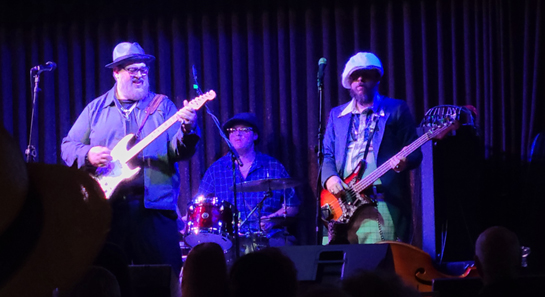
You’ve been releasing albums like clockwork every two years. What do have 15 or 16 albums now?Nick just laughs. “Somewhere around there.” You have studio and ‘live’ recordings. How do you manage to capture the energy of a live show? “I have two that were recorded ‘live’ at Chan’s and those were recorded probably over six different shows, because we usually didn’t play two nights in a row, so probably it was three weekends of gigs. When you’re playing two 90 minute sets each, you have a lot of material and you just pick the best stuff.”
You have production skills as well, how did you end up producing Magic Slim’s album, ‘Midnight Blues?’ “At the time, Jerry DelGiudice was courting me to be on Blind Pig’s label and part of the deal was…he knew that I loved Magic Slim and he kind of tossed that out there. ‘Hey man, would you like to produce a Magic Slim CD?’ Ahh…Yeah! Not realizing how hard that would be…and the only reason I say it was hard is because there was nothing serious about it. There was so much laughter it was hard to stay focused. Slim kept me laughing the whole time. The band kept me laughing, but the material was so good. And Slim just said, you pick the material, so I got to pick all the songs to do. It was just off-the-cuff like that.”
Talk a little about your creative process when you make music; is it inspiration or spontaneity, where does it start for Nick Moss? “So I’ve never looked at it as if I’m fulfilling something within me or fulfilling someone else…the only way I’ve ever known it is this. When I was a little kid, my mom’s record collection was awesome and you listen to so many different records growing up and I remember one day running through the house and playing with a friend. I must have been six or seven years old. My mom had a B.B. King record playing, I think it was Mississippi Seeds, I can’t even remember what song it was but right in the middle he was playing this wicked solo, a really sparse solo and in between notes he’s hitting these falsetto’s…singing. And it stopped me dead in my tracks. For me I didn’t hear it…I felt it. It felt like a bolt of lightning, like my whole body buzzed. I felt like this… Zzzzzzzzz! I didn’t process it through my ears; I processed it through my body…and my friend is saying, ‘C’mon, c’mon!’ And I go wait, wait, wait and I just stood there next to these big tower speakers because my dad had bought a new stereo system and I was standing next to the speaker just mesmerized by what was coming out. I remember looking at my mom who was in the kitchen and asked, what’s that? My mom says, ‘that’s B.B. King!’ I said what’s a B.B. King? I didn’t know. My mom says, ‘That’s a B.B. King!’ I said, play it again.” (laughing) “I think, getting back to the question is anytime I get to make music or get to write music or anytime I get to stand on stage playing music with anyone I love to be with, I’m continually and constantly chasing that feeling that I got when I was eight years old when I first felt that buzz go through my body.”
What is it about 50s and 60s Chicago blues that appeals to you? “I just think there’s a lot of deep emotion in those songs. A lot of the jump blues are meant to be up and stuff and some of the country blues are meant to be heartfelt. There’s something about that 50s and 60s Chicago sound whether it’s up tempo or slow it runs the gamut of emotion. We try to have a lot of dynamics on our set too, when we play. And just the dynamics of the way those guys played, it just pulled me in so many different directions…it’s such a powerful and masculine sound sometimes…raw. And then sometimes it’s just the most beautiful and lush thing.”
Talk a little about working with Michael Ledbetter. “Ah, Mike was a unicorn. The kid just came out of nowhere. I wrote a song for him after he passed called, ‘The Comet’ because that’s what I feel like he was…a beautiful, bright, flying, burning ember that we all got to witness for a split second. And then it was gone! One thing about Mike, his performances, he had a way of making people feel really good immediately. He had such a big presence and quite honestly he had a lasting impact on me because I’ve had anxiety issues since I was a kid and I get different responses. People think I’m an asshole if I don’t talk to them or if I’m quiet. But if I know you, then its game over I’m your best pal. But if I don’t know people in a crowded room I kind of seize up so people either think I’m mad or I’m an asshole. And I’m not that guy. I remember with Mike when he was with my band for the first six months and we had played a few places and made our rounds again…playing places for the second time. I’d watch Mike walk around saying, ‘Hey Jim, Hey Tom, Hey Sally.’ He knew all these fucking people by name! I’m going how do you know all these people? He said, ‘What do you mean? You know they were all here last time.’ Dude, I’ve been playing these places for thirty years and I don’t know anyone’s name.” (laughing) “And he just looks at me and goes, ‘why don’t you try and learn.’” (laughing) “And you know what man; he made me get over my anxiety. I’m here to perform and people are here to see me, you can give a little bit more of yourself, Nick! And he did that for me.”
You write so much, how does music come to you? Do you write with an instrument? “A lot of times, I want to play in a certain style. I want to do something like Lightnin’ Slim or do something like Muddy or T-Bone or 60s B.B. King or 70s Freddie King. That happens and a lot of times I love…I’m a listener probably because of my anxiety where I clam up and listen to conversations. You know I hate the shit that’s on the news but I pay attention and things I read. One of my favorite sources…you know Baptist churches have the best marquees. You drive by some of these Baptist churches; I’ve gotten just off their marquees titles of songs, well that’s a song right there. I’m going to write a song about that. ‘High Cost of Low Living’ the title of one of my Alligator CDs and songs came from a Baptist church sign driving through West Virginia. It read, there’s a high cost for low living and you can pay up this Sunday. I go, Oh that’s great…I’m using that!
Like I said, paying attention, I love observing and I’m an observational humor guy. I love people watching and I’m constantly in awe of everything around me. I’ve always been that way, I notice everything. My drummer, Pierce (Downer) said to me the other day, ‘God, I wish there was a window into your brain, so I could see how this stuff develops.’
Is the joy of performance or the storytelling that means the most to you? “A little bit of both. I particularly love a story. I love to hear the story of things. Because I’m long-winded man, and I’ll talk!” (laughing) “And I can see it in people’s faces in the audience, you know? Aw, get on with it…play the song!” (laughing) “All the stories, man. Barrelhouse Chuck would tell me all these great stories about Little Brother Montgomery. You know he took care of Little Brother, till Brother passed away…because he was his idol, him and Sunnyland (Slim). It was Sunnyland that put him in touch with Brother, so Chuck felt it was his honor and his duty to take care of these old guys, so he would go there every day, help wash his clothes and bring his food. One of my favorite stories and I wrote a song about Barrelhouse Chuck when he passed away called ‘He Walked with Giants.’ And it was my tribute to Barrelhouse Chuck. Chuck told me this story…one day he and Little Brother were having lunch and Brother was telling Chuck what Michigan Avenue was like when he first moved to Chicago. And Chuck said, ‘Wow man, it’s nothing like that now.’ And Brother told him, ‘I haven’t been on Michigan Avenue in 30 years.’ Chuck says, ‘What are you talking about, let’s go! I’ll take you; you’ve got to see this.’ And it was like two in the morning and he took Little Brother downtown on the Southside and they parked the car and walked up and down Michigan Avenue and Little Brother was just silent, looking at all the buildings. All of a sudden he says, ‘you know there used to be a club here. I played with Louis Jordan here’ and all these other great musicians he played with at these spots. Chuck is just soaking it all in and turns around and Brother is like a block behind him, he had stopped. He goes back and Little Brother is just standing there shaking his head. Chuck says, ‘Are you alright?’ Brother says, ‘You know Chuck, there was one time I walked with giants on this street.’”
Now I’m looking across the table and Nick is just shaking his head. “Aw, man that’s heavy as hell. That’s heavy man. And I ended up writing that song for Chuck.”
Ode to Barrelhouse Chuck – ‘He Walked with Giants’
So you picked up Band of the Year honors in 2024 at the Blues Music Awards. “For many years one of my favorite things about going to the Blues Music Awards was me and Jimi Bott passing each other in the hall or by the tables, we had both been nominated so many damn times every year and never won. And we’re like, did you win this year? NO! Congratulations!” (laughing) “He was actually the first guy to win after like sixteen nominations and then two years later after twenty nominations I finally got Blues Male Artist of the Year, I think it was 2019. And then in 2020 we won Band of the Year, Album of the Year and Song of the Year after my 25th nomination, and finally got those so that felt pretty damn good. In 2024 we were nominated for a bunch and we ended up getting Band of the Year and honestly that’s the one I want anyway. I want my guys to be recognized, it would be great if Dennis and Rodrigo had won, I would love that too…but as the Band of the Year and being nominated as a cohesive unit that’s great, yeah.”
And what a band it is…you, Rodrigo Mantovani on bass, Pierce Downer on drums and Dennis Gruenling on harp and vocals.You’ve known Dennis a long time? “So I originally ran into Dennis at the SPAH (Society for the Preservation and Advancement of the Harmonica) convention in ’96. I was asked to back-up Kim Wilson and Curtis Salgado, and Dennis was there. That was the first time I met him. When I put out my first recording, ‘First Offense’ I got an actual letter in the mail, this was before email was a big thing. And the letter said, ‘Hey man, I’m a big fan of yours. I love your new recording and I’m a harmonica player from New Jersey and I met you at the SPAH convention and if you ever come out this way let me know.’ And it so happened I was putting together a tour up the East Coast and I let him know. And he got me three shows in New Jersey and came out and jammed with us and we’ve been friends since then. I followed his path when he put out his records and then he joined my buddy, Doug Deming’s band from Detroit and they were together for 7 or 8 years. And when those guys would come through Chicago…I kind of run the Nick Moss hotel for homeless musicians.” (laughing) “I put a lot of people up when they’re on the road; you know I feel like it’s my responsibility to help other guys too! We’re all friends, so when Mike Ledbetter decided he wanted to move on when he and Mike Welch put their record together (Right Place, Right Time) I knew it’s probably going to be really good and Mike’s going to end up going and sure enough Mike said, ‘Hey man, we’re probably going to end up touring with it and I might have to leave the band.’ So I said you’ve got to do what you’ve got to do, bud. And right at that moment, I’m one of those guys that can wear a jacket or a pair of pants and after not wearing them for two years, put them on and find a $20 bill in them. I’m that guy you know, Even Steven. So like two days after Mike tells me he’s gonna’ tour, Dennis says, ‘Hey man, I’m doing this benefit show in Grand Rapids, Michigan for the Headstone Project.’ It’s a really cool thing where they raise money to buy headstones for forgotten blues and jazz musicians. And he says, ‘I’d like to do a William Clarke show and you’re the only band in the area that could probably back me up.’ I said sure, we’ll do it. And I remember after the first set, I’m thinking that Mike’s leaving and I haven’t really played with a harp player for awhile and this is fun. I’m having fun! So during the break, I said Dennis, hey man between you and me we haven’t announced yet, but Mike’s leaving the band in a couple of months and I haven’t really gone back to a harmonica-based band in a long time, what do you think about getting together and doing some shows and maybe making it a thing? And he says, ‘Well, let’s try it out.’ And we did for another month and we both loved it. I had asked Roger Naber, we were doing the Blues Cruise in January 2017 and said look man; we’re going to announce on the blues cruise that Mike Ledbetter is leaving my band. We think it’s a good opportunity to announce that Dennis Gruenling is joining my band, can I bring Dennis with? And we can introduce everyone to what the new band is going to look like. And Roger to his credit, I love him said, ‘Absolutely, bring him with.’ And it was like a great transition, people were sad of course that Mike was leaving but then they got to see what the band was going to look like with Dennis. And it’s been ‘go time’ ever since.”
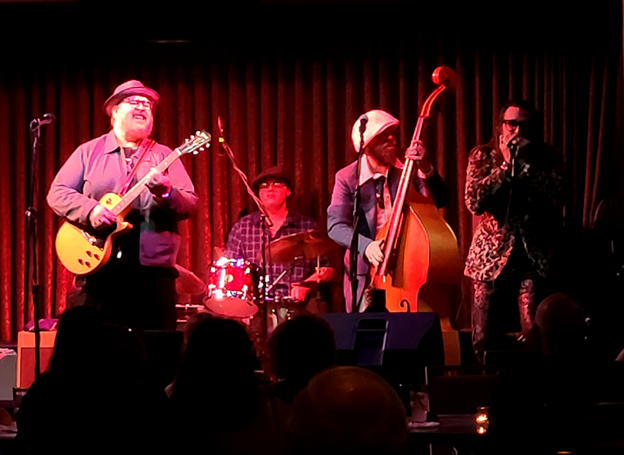
What’s next, any more recording or trips back into the studio? “The last one we did at my house or I have some friends in Chicago that run some good studios that I’m thinking possibly. I used to like having all the control in doing it but as I’ve gotten older it’s nice to have someone at least like-minded enough where I can trust someone to do some things. And I can keep my mind over here where it needs to be. Because, I’ve found over the years its way too stressful to have my mind split with this side or that side to do it all.”
How do you continue to cope with the road? You are continuously playing around Chicago; you’re in Europe and up and down the East Coast. That’s got to be tough. “I’ve got a daughter in college and she’s in a private school out of state, so…I got to make money!” (laughing) “No, I love playing! I will say when Covid hit; it was a really strange experience. I mentioned earlier about my anxiety and one of the things about having anxiety as a musician is making that transition from being on the road to being at home. That’s a weird transition to make because you’re a different creature on the road and at home. It takes me a week when I get home or a week on the road, before I can morph into either one. When Covid hit I was like how am I going to do this? How am I going to be this guy, at home for however long this is going to take? But after two weeks of it, I was like…this is great! I want this all the time. I got used to it and starting making adjustments, I was pretty optimistic that once Covid lifted, I’m going to figure out a different way of doing this. To manage it and do it better than we’ve done it before. I think we’ve figured out a better way of touring and not breaking our backs doing it.”
Lastly, can you describe Nick Moss’ blues? “It’s not mine!” He smiles. “All I’m trying to do is bring awareness and respect to people’s names I’ve mentioned and who were so gracious to allow me to be a part of their life and a part of their music. Jimmy Rogers, Willie Smith and Jimmy Dawkins and Pinetop and James Cotton; all these guys have let me be on their stages with them, the only thing I can do is show reverence and respect. They shared their knowledge so I can produce what I’m doing…it’s not mine.”


